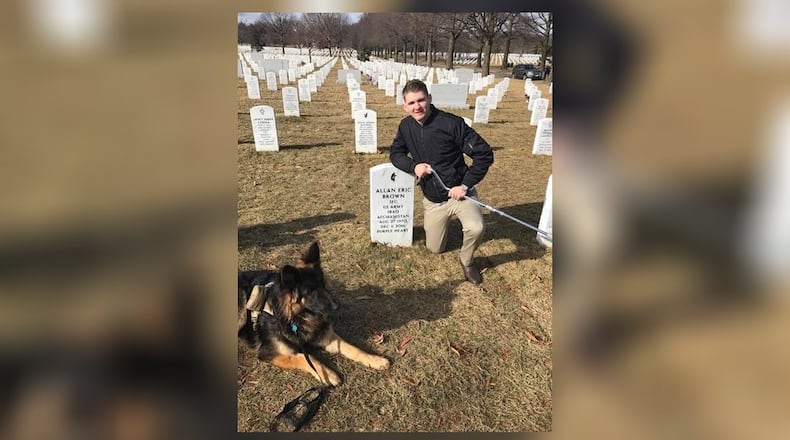Winston Hencely suspected something was wrong when he spotted an Afghan man walking alone toward a large crowd gathering for a Veterans Day 5k race. Locals often spent time on Bagram Airfield in eastern Afghanistan, where they worked for a defense contractor. But the company was supposed to guard them while on the base and escort them off it when their shift ended.
Before the Georgia soldier could stop him, the man detonated a suicide vest, killing six people, including himself, and injuring 17 others. Shrapnel tore through Hencely’s chest and brain, causing damage that lingers today. The 22-year-old from Effingham County, near Savannah, has difficulty using his left arm and leg, increased vulnerability to neurodegenerative disorders and day-to-day memory issues that complicate life.
To help make up for what he’s lost, Hencely is suing the South Carolina-based defense contractor that employed the bomber, alleging the company’s negligence contributed to the attack.
Credit: Massoud Hossaini
Credit: Massoud Hossaini
The suit says Fluor Corporation knew Ahmad Nayeb had a history with the Taliban, which is known to commit suicide attacks, before hiring him to work in a vehicle maintenance yard. Fluor failed to escort Nayeb off the base when it was supposed to that morning and, in the months leading up to the attack, failed to supervise him properly as he secretly built a suicide vest at the company’s facility, according to the suit, filed by the Atlanta firm Butler Wooten & Peak.
A Fluor spokesman said the company had no immediate comment on the pending litigation, which was filed this week in U.S. District Court in Greenville, S.C.
MORE: Ga. National Guard’s deployment to Afghanistan is family affair
MORE: Ga. guardsmen face crowded, complex battlefield in Afghanistan
Savannah personal injury attorney Richard Sanders, who isn’t involved in the case, said he was struck by the seeming rarity of the case.
“I think it’s absolutely unique,” he told The Atlanta Journal-Constitution. “I have heard of cases where you bring a claim against a civilian contractor because of their negligence. I think what makes this unique is, No. 1, it happened overseas. The other issue is the whole suicide.”
But, best Sanders can tell, the suit operates on familiar principals: an employer is accused of employing someone who causes an injury that could’ve been prevented by the company. It’s ultimately akin to a lawsuit against, say, a delivery firm that hired a driver who had a history of DUIs and then hit someone with the work truck.
As The Army Times has reported, the U.S. Army's investigation into the attack found that Fluor followed proper hiring procedures when it took Nayeb on but failed to properly supervise him.
The company hired Nayeb to work in a HAZMAT facility disposing of automotive materials, such as motor oil.
The investigation by the Army found that Fluor’s “unreasonable complacency” had allowed Nayeb to be unsupervised as he used Fluor’s materials and tools to construct the bomb, the suit notes. The Army found it credible when the Taliban claimed credit for the attack.
The suit says Hencely prevented further deaths by keeping Nayeb from reaching the crush of a couple hundred people gathered for the race.
But as a result, he also finds himself disabled.
“Hencely’s short-term memory loss will never improve,” his lawyers wrote. “He likely will never be able to cook for himself because he would forget that he put food on the stove. He likely will never be able to live alone and may require full-time live-in care for the rest of his life.”
The suit asks for a jury to determine how much he’s owed.
About the Author
The Latest
Featured



